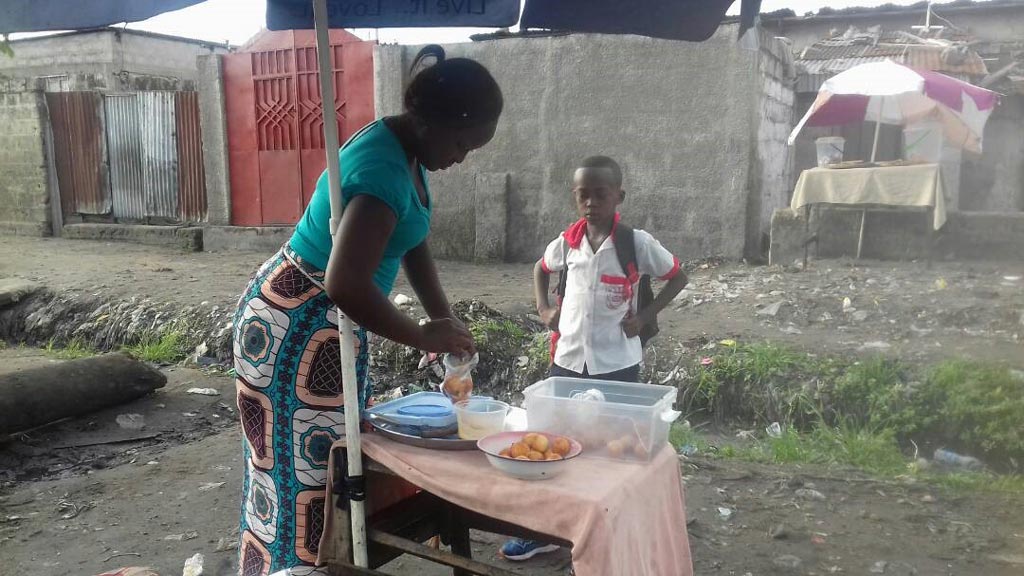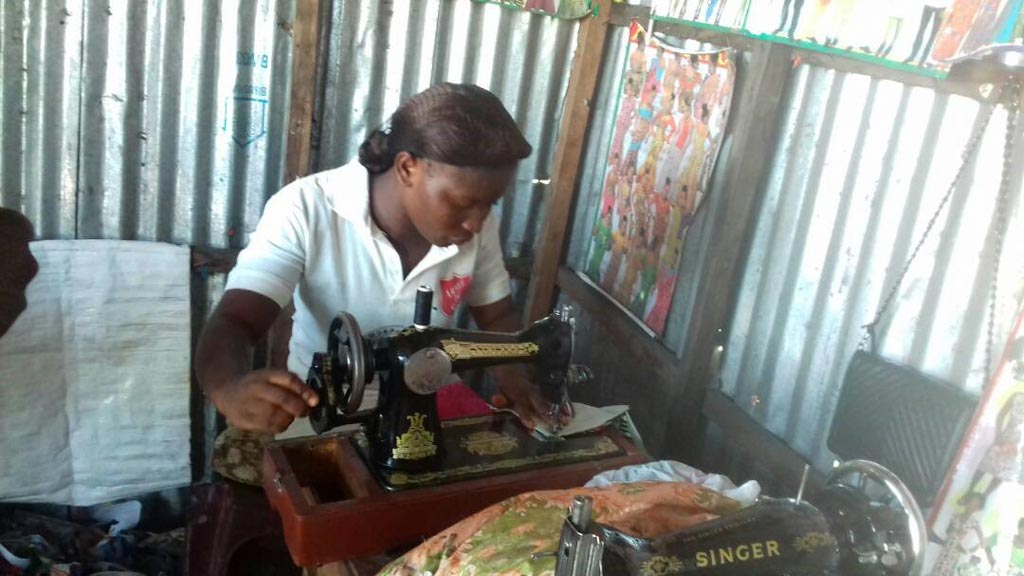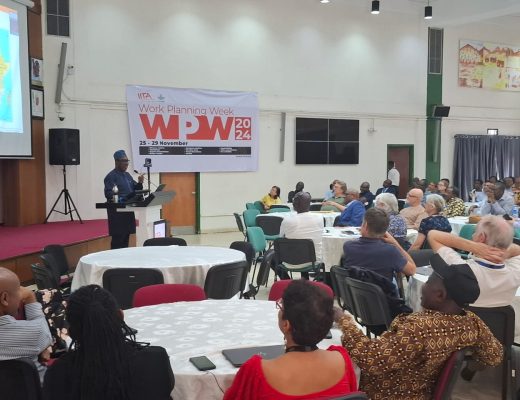Group 4 President in the cassava field, Kimvula (Photo: Rosalie Biaba Apasa)
This year’s theme for International Women’s Day is #PressforProgress. Women in DRC are now able to press for economic change in their lives and the lives of their families, to transition from poverty to better, healthier livelihoods through a jointly led project that focuses on health and agriculture. This will be the first in a series of blogs that will feature highlights from the project.
The International Center for Advanced Research and Training (ICART) and IITA have partnered in a project titled “Strengthening Livelihood Strategies of Vulnerable Women in the Democratic Republic of the Congo.” The 2-year pilot program began in 2017 and engages 450 women in three peri-urban locations surrounding Kinshasa, DR Congo. The primary aim of the project is to economically empower women who work in the sex trade by enhancing their access to financial, agricultural, and health services.
Financial hardship is a major driver for women’s entry into sex work. This project addresses economic, health, and gender issues through a unique, holistic livelihood approach to better support women’s transition from sex work to alternative income-generating opportunities.
In the project, female sex workers are aged from 20 to 38, and 84% of them are single. Most independently control the income earned (78%). Their average weekly income ranges from US$12 to 200. Most (99%) of the women want to transition out of this work; they want change.
This project supports women and girls’ efforts by improving their access and participation in savings schemes, establishing new social networks, especially collective action through the creation of women’s groups (10‒15 women each); and through the provision of knowledge and skills’ development. To date, the project has provided training sessions on improved agricultural skills and food processing. Peri-urban agriculture and food processing feature as important, alternative income-generating activities in the project. Currently, 1.5 hectares have been planted with cassava that will be processed into flour to prepare baked goods to sell. A group leader in Kimvula (photo below) learned improved techniques to cultivate cassava and vegetables. She depends on agriculture to support her livelihood and plans to one day own her own plot of land to cultivate. In addition, vegetables have been planted on 0.5 ha to improve the nutritional status of women and their families.
Savings is a critical aspect of the project and women have been encouraged to save for at least one year. To date women have collectively saved over $1808.
Fifty young women are receiving vocational training in dress making, hair styling, and literacy. Kungwa, aged 19, is an orphan and is raising two children on her own. She has learned to sew through her engagement in the program and is now earning and managing an income that is sufficient to support her and her family. She would like to open a tailoring business.
Through this project, women are empowered to press for change, to transition from vulnerable conditions to better livelihoods. More projects that holistically address economic, health, and social aspects are needed to prepare these women for lasting, sustainable change.
Note: The project “Strengthening Livelihood Strategies of Vulnerable Women in the Democratic Republic of the Congo” is funded by the Bill & Melinda Gates Foundation.
by Renee Bullock, Rosalie Biaba, and Kanigula Mubagwa







No Comments